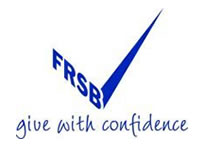Five charities agree best practice charter for child sponsorship fundraising
Five children’s charities have agreed and committed themselves to the new Child Sponsorship Charter, new collaborative standards that aim to bring greater clarity and transparency to child sponsorship fundraising in the UK. Supported by the Fundraising Standards Board (FRSB) and the Institute of Fundraising, the charter sets out guiding principles for child sponsorship programmes and how they are marketed.
The FRSB facilitated and chaired a consultative forum of five leading charities that all run successful long-term child sponsorship programmes – Plan UK, World Vision, ActionAid, EveryChild, SOS Children’s Villages. Other umbrella bodies also took part in the process – the Institute of Fundraising, Charity Commission, and the Committee of Advertising Practice (CAP), which sets the codes of practice enforced by the Advertising Standards Authority (ASA).
Over 10 months the forum reviewed guidelines last established in 2001, established the needs of today’s child sponsorship market and agreed a consistent set of guiding principles for best practice relevant to all charities implementing this type of fundraising programme.
Samantha Wilson, Head of Communications at the FRSB, says, “We are extremely pleased to have worked with this group of charities to create the new Child Sponsorship Charter. It is current in its straight forward language and definitions, and it offers clear, robust ./guidance for best practice in marketing and fundraising communications”.
She encouraged all charities that work in this area to commit to and adopt the Charter into their practices.
The collaboration was initiated when Plan approached the FRSB in April 2010 after a public complaint about a Plan DRTV ad, the first in its 74-year history, was investigated and dismissed by the ASA. Plan, a pioneer in fundraising through child sponsorship, and the FRSB felt there was a need to review standards with a specific focus on marketing and public messaging. Greater clarity was needed around the meaning of ‘sponsorship’, referring to one-to-one relationships with an individual child, and transparency in communicating how donations, usually unrestricted income, are used within the child’s community or country.
Daniel Child, CAP Copy Advice Executive, who works specifically with charities and not-for-profits, said: “The CAP Code requires that all ads are legal, decent, honest and truthful. The Child Sponsorship Charter reflects these key principles and provides further ./guidance for charities to help get their marketing right which, ultimately, is in their best interest – marketing communications that are trusted are more likely to work and deliver value.”
The Child Sponsorship Charter will be promoted to relevant FRSB member charities to encourage adoption and will be freely available on the FRSB website. The FRSB aims to maintain the Charter and schedule future reviews with the Institute of Fundraising to ensure its efficacy.
www.frsb.org.uk



